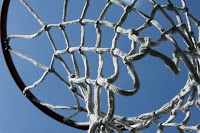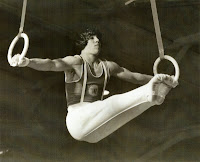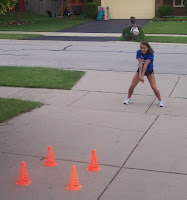I will
- Consistently, and without reservation, strive to reach my full potential.
- Be committed and disciplined in my approach.
- Take personal responsibility, and any action necessary, to achieve team and individual goals.
- Demonstrate a deep desire to succeed, applying passion and heart to any and every task at hand.
- Set priorities, and make the required sacrifices, that enhance the chances for athletic success.
- Persevere through adversity with a positive attitude and concentration that strives toward excellence and mastery.
- Establish a mindset that highly encourages the belief and confidence that one can accomplish anything, if they are so willing.
- Apply a training and competitive focus that creates the opportunity to transform the impossible into the possible.
All set on a foundation of strong character and integrity that beseeches one to do the right thing just because it is the right thing to do
And so you may ask – “Why follow a code of such standard?”
Because I believe I can make a difference
And because I believe it
Then it is something I should do
Because it is something I should do
Then it is something I will do
So I toil and sweat both through the good days and the bad
Chipping away at any weakness that following the code may reveal within
Creating inspiration from athletic experiences of days gone by
From future experiences that have yet to occur
And from those who may someday attempt to walk the same path
Never giving up
Never giving in
And never swaying – but for a moment
From the Code of a True Champion
“Why?”, again, one might ask
Kirk Mango 2009



























 Youth sports participation today has become more popular than ever. It is estimated that approximately 10 million high school age students participate in extracurricular athletic programs in the United States. If you take into account all sports participants from age 6 to 18 years of age, the number more than triples to approximately 32 million as reported by the National Council of Youth Sports (NCYS) in their 2000 census. And based on current trends, it is more than likely that these numbers will not be decreasing anytime soon.
Youth sports participation today has become more popular than ever. It is estimated that approximately 10 million high school age students participate in extracurricular athletic programs in the United States. If you take into account all sports participants from age 6 to 18 years of age, the number more than triples to approximately 32 million as reported by the National Council of Youth Sports (NCYS) in their 2000 census. And based on current trends, it is more than likely that these numbers will not be decreasing anytime soon.

